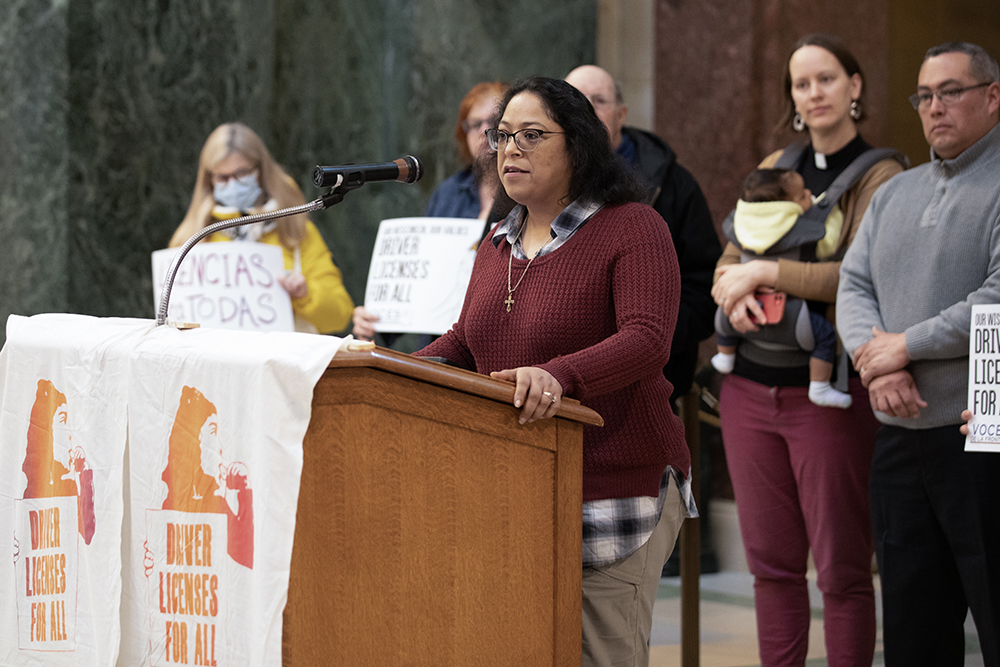Wisconsin lawmakers clashed Tuesday over a Black History Month resolution that named controversial athlete Colin Kaepernick, a former NFL quarterback.
The resolution text, drafted by the state Legislative Black Caucus, said it aims to “recognize the significant contributions people of African descent have made, to the foundation, growth and development of our country and state.”
After more than an hour of debate, Kaepernick was removed from the resolution, which includes figures like Lucien H. Palmer, the first African-American to be elected to the Wisconsin Assembly, Violette Neatley Anderson, the first African-American woman to practice law before the United States Supreme Court and former Secretary of State Condoleezza Rice.
News with a little more humanity
WPR’s “Wisconsin Today” newsletter keeps you connected to the state you love without feeling overwhelmed. No paywall. No agenda. No corporate filter.
A member of the Legislative Black Caucus said having to alter the resolution in order for it to pass was disappointing.
“You literally are putting me on the decision-making table to question if I want to be fully black today, or like half black today,” said Rep. David Bowen, D-Milwaukee. “At the end of the day, I can’t change the fact that I’m black, but I would love to make sure I have colleagues that can continue to trust and work with me as I unapologetically highlight the folks in this (resolution) that I know have made a positive impact on the community I come from.”
According to Assembly Majority Leader Jim Steineke, R-Kaukauna, some Republican members of the state Assembly were concerned about Kaepernick’s inclusion in the resolution.
Kaepernick, former quarterback for the San Francisco 49ers, has been a lightning rod for political debate since he began kneeling during the national anthem preceding games in 2016 as a way to protest racial inequality in the United States. He has since left professional football, but remains a polarizing figure.
Assembly Speaker Robin Vos, R-Rochester, said it was unfortunate the caucus chose to include such a divisive figure in their resolution.
“We’re in a new era, we’re trying to figure out ways to work together,” Vos said. “We would hope they would have more consideration to say, let’s look at finding ways to work together, rather than always looking at ways to drive us apart.”
Rather than vote on the resolution drafted by the caucus, Republican lawmakers at first attempted to bring up their own Black History Month resolution. That resolution omitted Kaepernick and Milwaukee Rev. Greg Lewis, and added Lt. Gov. Mandela Barnes and Vel Phillips, the first African-American to be elected to statewide office in Wisconsin.
Chairman of the state Legislative Black Caucus, Rep. David Crowely, D-Milwaukee, called GOP lawmakers’ refusal to take up the caucus’ resolution as drafted a “slap in the face.”
“The biggest issue that we have as a black caucus is people choosing to pick our leaders for us,” Crowley said.
The state Senate is expected to take up a Black History Month resolution Wednesday.
The office of Senate Majority Leader Scott Fitzgerald, R-Juneau, did not immediately return a request for comment about which resolution to the Senate would vote on.
Wisconsin Public Radio, © Copyright 2025, Board of Regents of the University of Wisconsin System and Wisconsin Educational Communications Board.






